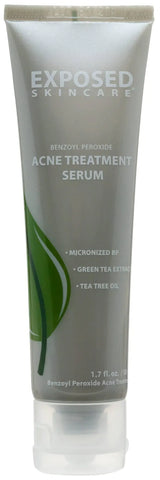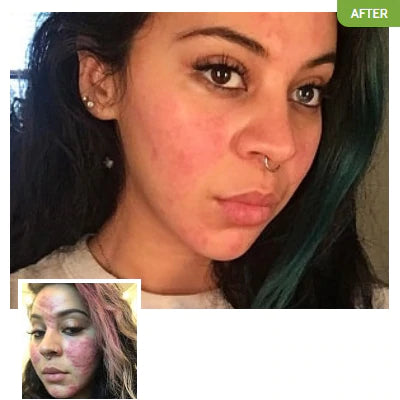Coconut oil's reputation as an effective do-it-yourself acne cure can actually do more harm than good.
Coconut oil is comedogenic, meaning it will very likely clog your pores, leading to more acne. Though it has some properties that can be good for your skin, it should not be applied to the delicate skin on your face, especially if you have acne-prone skin. Instead, use products containing benzoyl peroxide to reduce acne-causing bacteria and a non-comedogenic moisturizer.
But does coconut oil have any health benefits? And is there a way to use coconut oil safely? Even if it is safe, what more effective products are available?
Also read: How to choose the best acne treatment

Coconut Oil: Great for Eating, Not for Skincare
Why is coconut oil recommended as an acne cure? It does have properties that appear to address two root causes of acne: bacteria and inflammation.
Antibacterial Properties
Coconut oil is unique among other fats. Instead of the long chain fatty acids found in animal products, coconut oil is rich in medium chain fatty acids. One such fatty acid is lauric acid, which has proven antibacterial properties against P. acnes, the bacteria whose overgrowth is a leading cause of acne.
Coconut oil is the largest source of lauric acid found in a natural ingredient, which is why DIYers have been quick to use this common kitchen product as an acne treatment. Nonetheless, the only way to harness the benefits of lauric acid is to apply the oil directly to the skin, which could clog pores and exacerbate your acne despite its antibacterial properties.
Anti-Inflammatory Properties
Another root cause of acne is the inflammation that occurs when bacteria, skin cells, and sebum get trapped in pores. Coconut oil has anti-inflammatory properties, meaning it can reduce this natural immune response and calm blemishes.
This is due to its status as an antioxidant, a compound that reduces the oxidative stress that occurs during inflammation. This means that theoretically adding coconut oil to your diet may offer you these anti-inflammatory properties.
That means that when it comes to coconuts, add them to your recipes, stick a straw in them and drink the milk, even go ahead and break them open to eat the inside. But don't put it on your face as a skincare product.
Coconut Oil: Especially Not For Acne-Prone Skin
Despite these potential benefits, one very important cause of acne is neglected when using coconut oil topically: clogged pores.
Coconut oil is very high on the comedogenicity scale, a metric that tells how likely it is that a substance will block your pores. This means that despite some of its beneficial properties, it should never be applied to your facial skin. Applying coconut oil to your facial skin will trap in dirt, sebum, and dead skin cells, negating any antibacterial or anti-inflammatory properties you could gain from using it topically.
In fact, you should also be careful about using coconut oil in your hair, as this is a common ingredient in many hair care products and it might be causing your acne, especially on your forehead and scalp.
Where Coconut Oil May be Beneficial
As mentioned, coconut oil does have anti-inflammatory benefits when ingested. Adding small amounts of coconut oil to your diet could have positive effects on your acne.
In addition, coconut oil has emollient, or moisturizing, properties as well. While it should never be applied to acne-prone facial, chest, or back skin, coconut oil could be a useful moisturizer for very dry skin on the hands and feet.
Coconut Oil Alternatives for Acne Treatment
Instead of using an acne-causing product such as coconut oil, harness all of those good properties with bacteria-fighting and gently exfoliating ingredients in a well-rounded skincare routine. At Exposed Skincare, we provide only the best, scientifically researched products.
Exposed Products are Antibacterial
Bacteria fighting properties are still important to seek out. Benzoyl peroxide is just as antibacterial as lauric acid but doesn't clog your pores. Try it out in our Acne Treatment Serum.

Exposed Products are Anti-Inflammatory
When using anti-bacterial ingredients like benzoyl peroxide, it's important to balance them out with soothing ingredients so that they don't cause dryness or inflammation.
At Exposed, we combine the best that science and nature have to offer to not only get rid of acne breakouts but also contribute to overall skin health.
In our kits, we include ingredients like green tea, which is proven to calm inflammation.
The best part? Our kits are guaranteed to get rid of your acne.

Exposed Will Never Clog Your Pores
Gently exfoliate away dirt, sebum, and dead skin cells that can clog your pores with a chemical exfoliant like salicylic acid. This is the active ingredient in our effective yet gentle Clear Pore Serum.
Above all else, it is important to go beyond any individual DIY treatment with a well-rounded, scientifically proven topical skincare routine. We have your best interests at heart at Exposed Skincare, which is why we include both of the aforementioned serums and more in our Basic Kit. And remember, if you don't notice smoother, acne-free skin after using it, return your kit for 100% of your money back.













